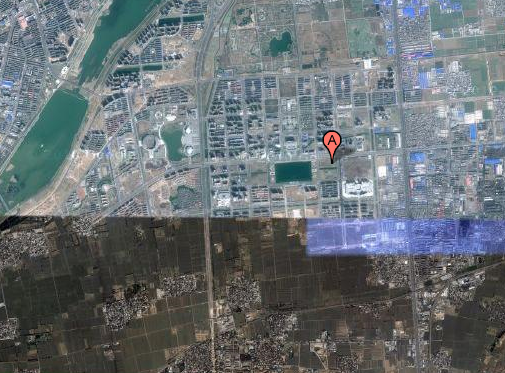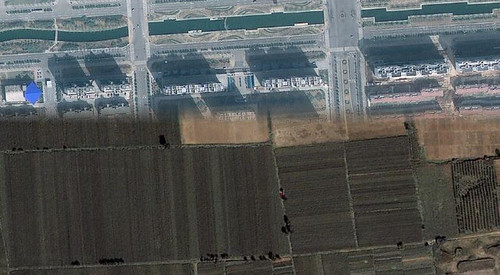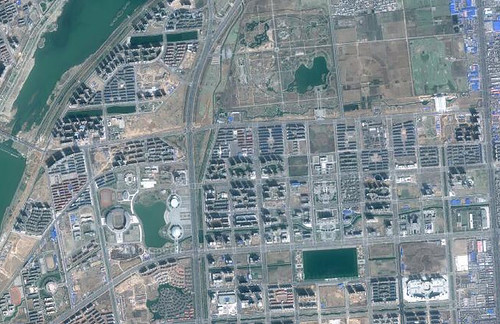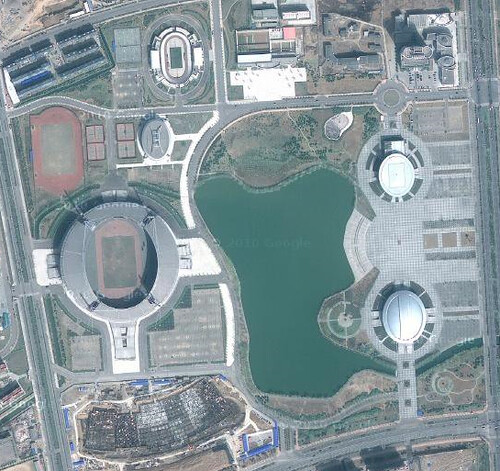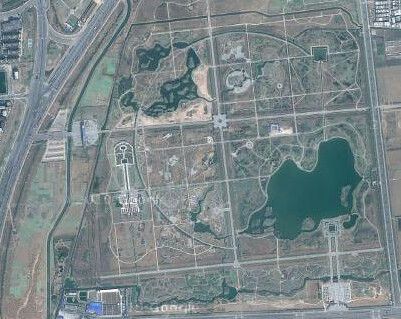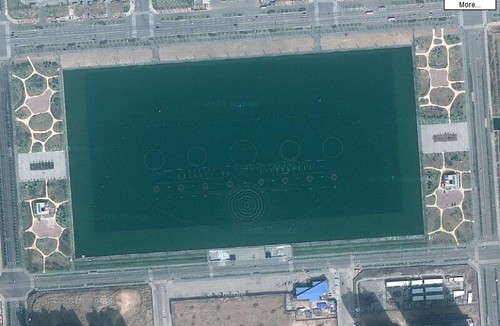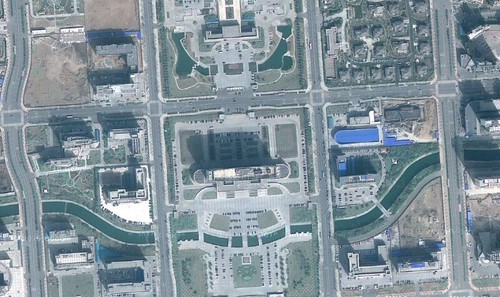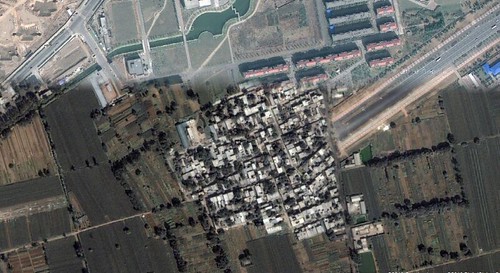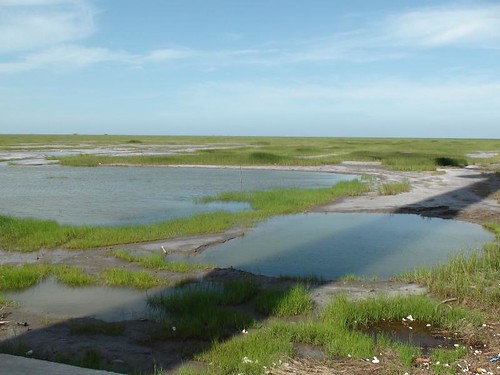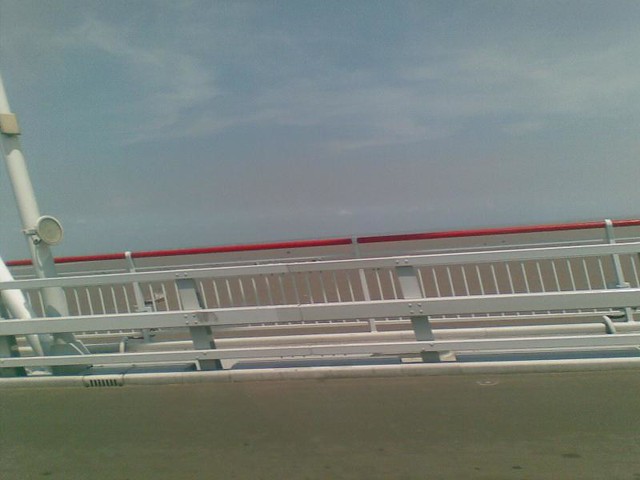I cannot believe it. In three days, Yifan will officially start his kindergarten life. This will be a great milestone for him. The kindergarten starts from Sept 1, 2010 – the official school date for almost all schools, and kindergartens in China. I attended the first parents’ meeting yesterday.
Don’t get confused with Yifan’s current kindergarten. Yifan was in another kindergarten for two months:
Yifan Started His Kindergarten Life
Yifan’s Second Day in Kindergarten
That was pre-kindergarten child care. From Sept 1, he will be officially enrolled.
Yifan’s Kindergarten – Shanghai Oriental Jinxiu Kindergarten
With the rapid urbanization in Shanghai, there are new kindergartens being built every few years. Yifan’s kindergarten was just finished – barely finished with the workers still busy moving the building materials out of the campus. Yifan will be the first batch of kids attending the school. Interestingly, with 23 classes, it will be the largest kindergarten in Pudong area.
The Building
When I started the blog, I wanted to share events around me with my readers, so people can “virtually” experience the life of Shanghai. I am happy to share the new kindergarten.
I am very satisfied with this one. It is within walking distance from where we live – just one block away. Yifan can walk there easily.
The building was designed by an American architect – that is the typical way for an organization to show off the “quality” of their building.
This is a corner of the building. The building is a three-story closed building formed the shape of a square with courtyard in the middle.
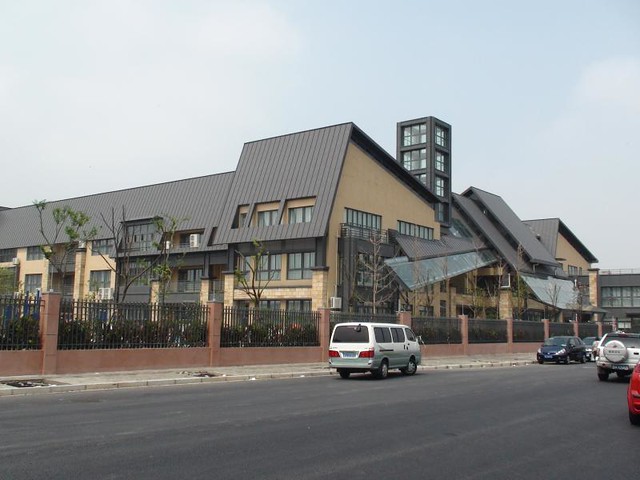
This is the entrance:

The big hall full of toys. With the recent kindergarten accidents in China, they obviously strengthened the security. Parents cannot enter the kindergarten after 8:30, and the local police sent policeman every day.
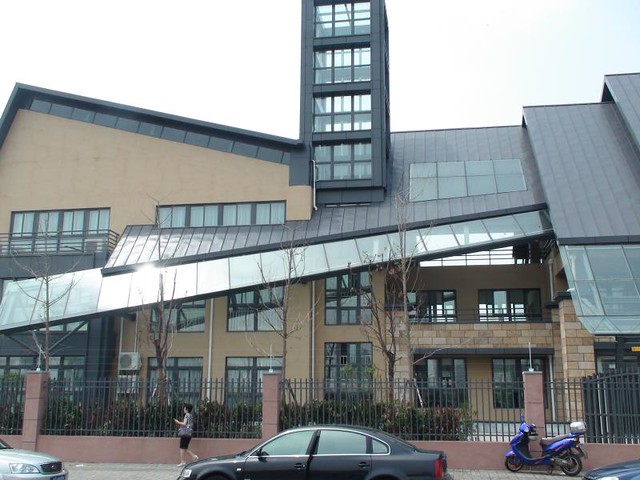
They have a nice playing field – the toys, and equipments are still under installation.
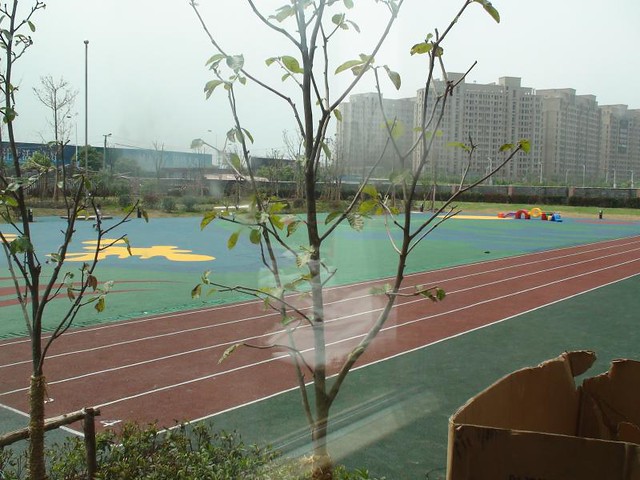
I heard they have swimming for the kids. It is not finished yet.
Yifan visited the kindergarten after the parents’ meeting. He obviously enjoyed the cars, and toys here.
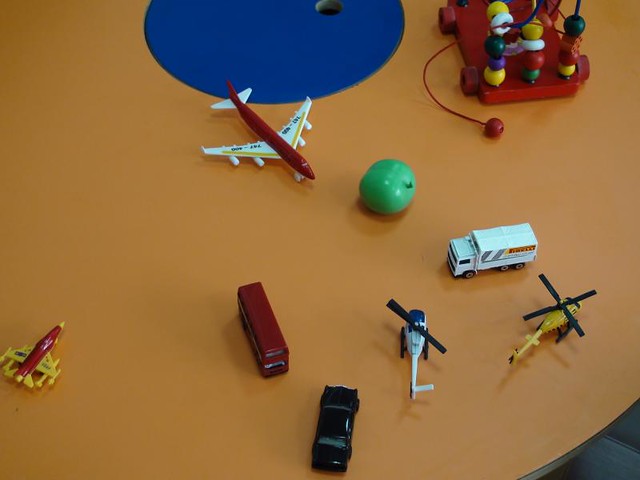
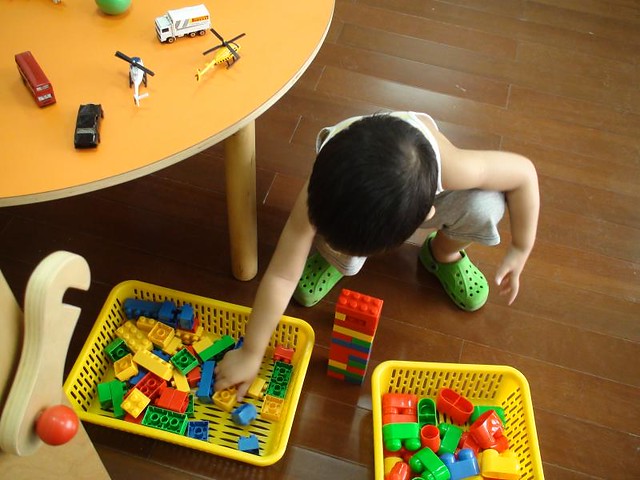
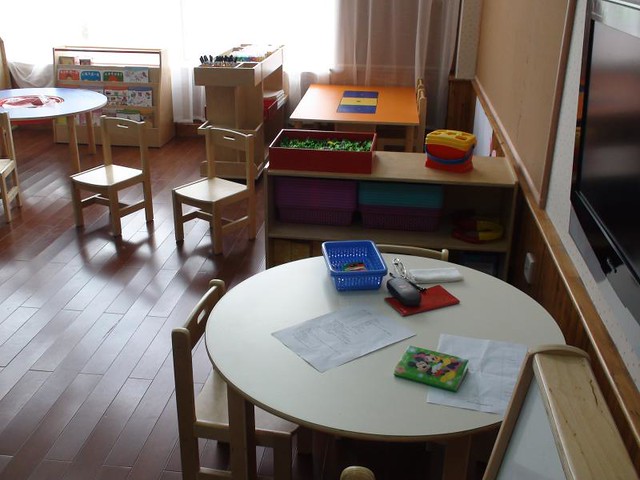
They have cute chairs, and tables. I checked our their class room – there are four rooms in it.
One is living room – where they play and have classes. The other equally big one are their bed room with about 20 small beds in it. They will sleep between 12 to 14:30 in the noon.
The third room is the entrance where they place a lot of equipment there.
The forth is their restroom.

This is the courtyard in the middle of the building.
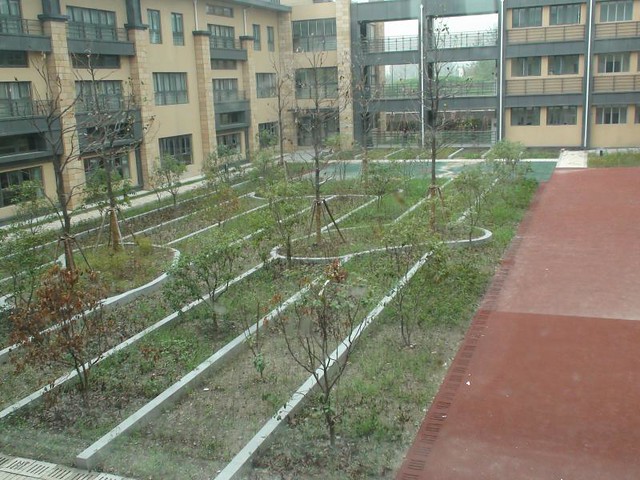
Cost
This is a public kindergarten, so the cost is very low. Because it is a newly built one, and they haven’t evaluated and given it a grade yet, it is charging by a lower standard.
The cost will be 180 RMB / month (that is about 25 USD). Cheap, isn’t it? For this particular case, I am satisfied with the public service of Shanghai, although in most cases, I feel desperate because of the lack of resources – med care, for example.
This is the scene of the parents meeting. They have about 20 students for the 3-year old class – junior class. For each class, there are two teachers, and an Ayi.
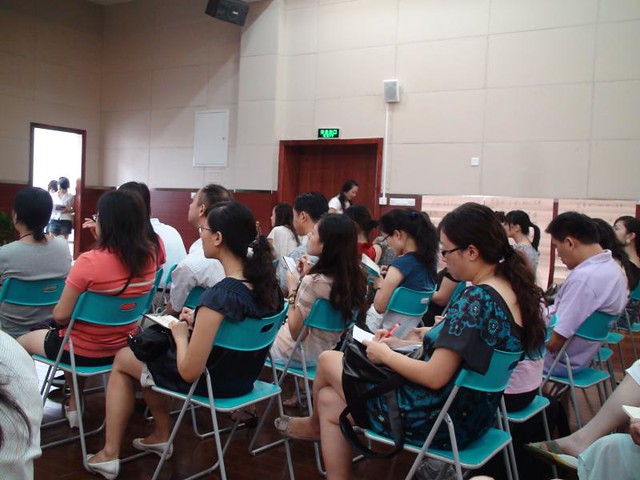
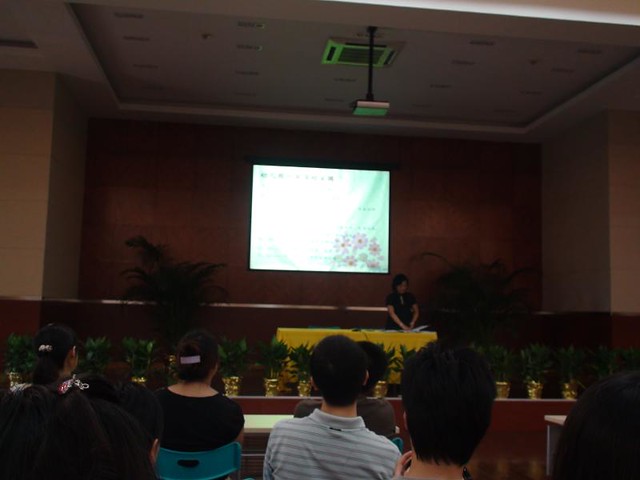
Hopefully, Yifan will love his new kindergarten and start his new life smoothly.
Yifan’s Kindergarten v.s. Mine and my middle school
Yifan’s kindergarten is very nice. The facility is much better than my middle school, not to mention primary school in Luoyang.
This reflected the change in both cities, and time. It is a new kindergarten built 20 years from my age, and it is in Shanghai, one of the most advanced cities in education, and Luoyang is one of the underdeveloped city.
Another change is, 30 years ago, I was not able to attend a kindergarten because of I didn’t have a Luoyang city Hukou (residential permit). The result is, I never attended a kindergarten. But fortunately, I spent extremely happy time along the rivers, and neighborhood, with a home key hung on my neck.
Now, kids at the age of Yifan can attend the kindergarten even without Shanghai residence, as long as they are in the school district. (Well, the Shanghai local residence are given priority in enrollment though). That is the change in the last 30 years.











